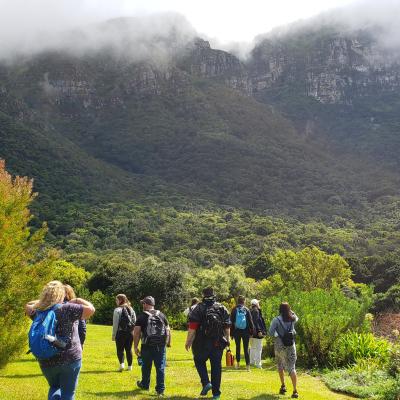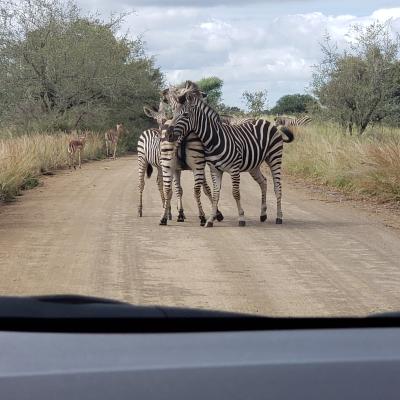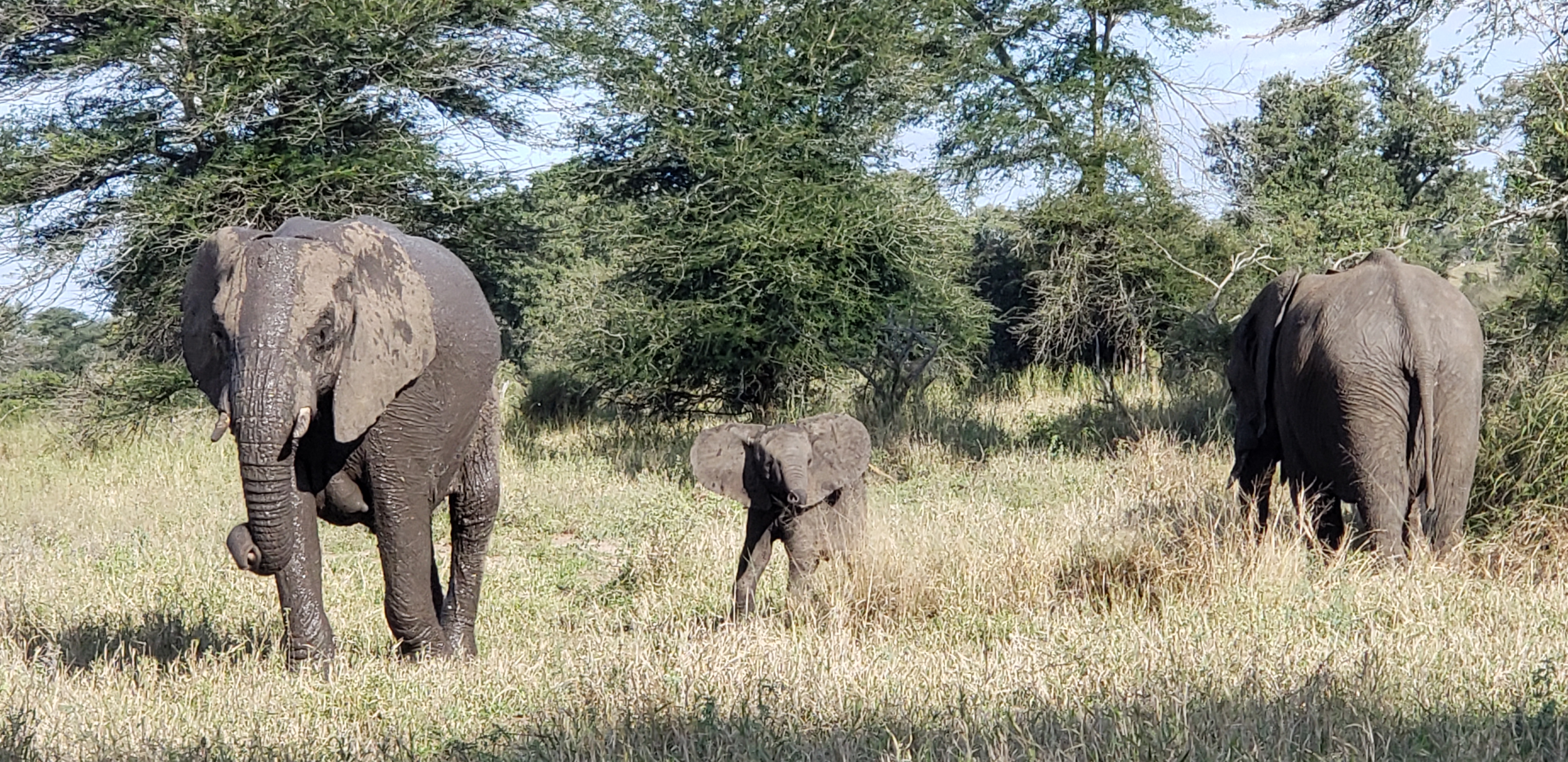
Study Abroad Experiences
South Africa
Susan Zamora decided she wanted to pursue a bachelor of science in anthropology after nine months of being retired. Zamora received her first degree from Princeton University, and worked in software development for 40 years.
“Anthropology was something that I always wanted to do, but back when I got my first degree 40 years ago, my focus was more about raising a family and income,” Zamora said.
She said she’s always been interested in anthropology and North America. She would take her children in a motorhome and they would visit historical sites.
Zamora is currently an online student at Arizona State University and she participated in the study abroad program to South Africa with Kaye Reed, President’s Professor at the School of Human Evolution and Social Change in the Spring of 2022.
Zamora talked with us about the experience and how it made an impact on her education at Arizona State University.
Some answers have been edited for length and clarity.
Question: Can you talk about the historical sites you visited in South Africa? Did you have a favorite?
Answer: Anthropological Historical sites visited where we delved into the meaning of 'social justice' and how it impacted the people of south africa. At all these sites we had talks with people who actually lived through these turbulent times. Although this part of the trip was gut wrenching and very sad to hear, it made me appreciate more of what the US has to offer and more determined than ever to preserve our democracy.
Robben island: to experience the prison that Nelson Mandela was held in for 27 years. Christo Brand came to our hotel and gave a very intimate talk to our group about what it was like as a prison guard for Mandela and then how they became friends for life. We also received a talk with a person who was in prisoned with Mandela who shared the inhuman conditions they were subjected to.
Soweto township north of Johannesburg were protests against apartheid were held. A lady whose young brother was killed during the protests came and shared her thoughts.
Bo-kaap and District 6 - where homes were taken away due to color. Several folks, who were children when homes were taken away, described the impact to their families. These folks were also able to describe how it felt many many years later at the end of apartied to have the period of Reconciliation and the struggles surrounding the 'coming back together of the people'.
Paleoanthropological sites visited were all located in the 'Cradle of Humankind' which is but a two hour drive north of Johannesburg. This part of the trip was absolutely thrilling because it tied back to some of the classes recently completed at ASU.
- University of Witwatersrand (in Johannesburg) - Human Origins center - the Vault where all the hominin fossils found in South Africa are stored for safekeeping. We saw the fossil of 'Little Foot' and of the Taung Child (Discovered in 1924 it was an Australopithecus africanus skull that was identified as a new species).
- Visited Sterkfonetin Cave where 'Little Foot' was found and given a behind the scenes tour by a Professor that works there
- Visited Drimolen Cave where specimens of Paranthropus robustus and Homo erectus have been found. Received a personalized tour by the Professor doing research there.
Q: Talk to me more about the cultural aspects of anthropology you learned while on this trip and how it was different than being in the classroom.
A: The trip was divided into three different learning experiences that were very hands-on. It was like you were 'living' the experiences not just reading in a book or watching a video. The social justice aspects learned in Cape Town just burned into my soul, I would feel so terrible about what people had to endure and how they had to fight to be treated and respected as human beings.
The Paleoanthropology aspects were so exciting because we could actually experience the real sites and sounds of caves and digging and rocks and fossils! And last but not least was the Kruger National Park experience that was related to the paleo-ecology part of the trip. We hiked all day in the Arboretum looking at all kinds of strange and amazing plants that are only in South Africa's fynbos environment in order to relate vegetation to the landscape. Then, we traveled high into the Blayde Canyon region to understand the diverse landscape that is South Africa. And finally, that was put all together in Kruger National Park where we captured animal census data, matched it to landscape and vegetation.
Q: Tell me more about how interns in Professor Reeds courses will process data from South Africa? How does the field work tie into the classroom learning experience?
A: In the internship undergraduates (under the supervision of Professors Reed and Dr. Su) will be taking the animal census data, GPS data and environment data and using it to track the animals across the different environments. I enjoyed this project because it exposes me to what kinds of steps researchers might use to advance their projects.
Q: You mentioned you took a cooking class while in South Africa? Can you tell me a little more about that?
A: As part of our cultural anthropology exposure, we were in the community of Bo-Kaap which is a traditional Islamic community. Our class was divided into two groups and each group went to a home where the lady of the house had us help her in the kitchen prepare several traditional dishes for a meal.
Q: You talk about meeting people and seeing dress from a traditional South African tribe, can you tell me the name of the tribe and how that interaction was?
A: We went to a cultural center for the SAN people. In their museum they had many displays of traditional dress and weapons. They shared a few traditional stories that were quite fun like how to 'catch a wife'. (you use a tiny bow and arrow and the guy shoots at his intended. If she likes him, she gives the arrow back or else she breaks it which means 'no'). What was really interesting was hearing them speak. SAN people use 'clicks' in their speech to form words.
Q: You also mentioned you had assignments you had to do, was it helpful in the learning process? How much course credit did you receive?
A: We earned 3 credits per class and there were 2 classes so a total of 6 credits earned for this trip. The assignments helped me to crystallize my thoughts around the experiences for the day.
Q: Would you recommend this trip to other students?
A: Yes, definitely would recommend this trip to others


